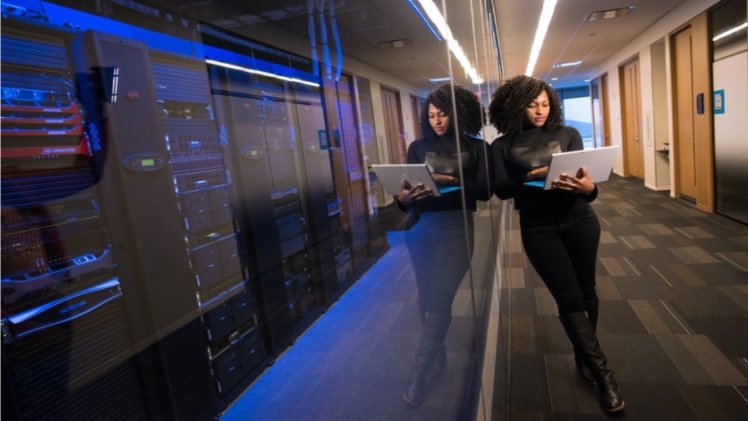The number of cyberattacks has been overwhelming over the last decades. The devastating act can threaten any of the organizations before they know. People face multiple fraudulent scenarios, and there’s an immediate need for a robust security system to improve an organization’s security.
We live in a world where most people do not pay due attention to security while sharing sensitive information on the internet. An organization consists of a group of people that work towards a common goal. And every employee is the keeper of some precious data according to their designation. However, where an amount of information is concerned, there are many chances of data theft.
A weak virtual system gives a free hand to the third-party scammers to take advantage of the user information. Since the internet hackers are always alert to detect a loophole to open access to the nature of work, they yearn to attack and steal.
To avoid any unfortunate events that can destroy users’ privacy to the unretrievable damage, one should operate high-quality firewalls and robust security servers to block access to the sensitive data so any dubious forces cannot breach it.
Why Do You Need a Firewall
A Firewall is a computer security mechanism that focuses data and prevents third-party cybercriminals from attacking the an internal network. It creates a robust bridge that prevents malicious domains and cyberattacks from breaking entry into the system.
Installing a firewall in a system comes with complete security. Therefore, it helps the system bound user information within the walls for the wholesome experience of security, privacy, and reliability.
A firewall establishes a defense between the internal network and the outside world. Traffic coming from the internet cannot be relied on and considered safe because of several unknowns.
In the fast-rotating globe of technology, there is no security or digital privacy that can be procured by the internet user. But one can create its privacy measures if one determinedly follows the privacy-techniques.
Three types of secure Firewalls offer immediate privacy measures. It includes:
- Packet filters
- Stateful Inspection
- Proxy Server Firewalls
A user can install any effective security tools to protect the organization from government surveillance and any loss of data theft by internet hackers, Internet Service Providers (ISPs), and cable companies and competitors who might need to have an eye over your institutional movements.
Why Take Cybersecurity Measures
Internet is a fragile medium when it comes to privacy. It is not safe to rely on things that can cause severe damage to the enterprise data. Cybercriminals can monitor the user’s internet activities anytime and can send malware or any file containing viruses to damage or steal the data and use it with their means of communication.
There are robust systems run by third-party hackers searching for vulnerabilities in connections to access sensitive files and sell them on the dark web for their filthy purposes. If one is not aware of the hacker’s tricks, they might risk their precious data.
Isn’t it scary enough to hear about? Save yourself going through this cruel reality and start taking cybersecurity seriously. You can fully trust Sapphire in this regard.
Purchasing a highly secured paid security software is not enough if there are human vulnerabilities. The internal operation of the systems can lack primary security if employees of the organization are not trained enough to fight any of the suspicious threats.
How To Detect a Fishy Behavior
If only organizations could normalize employee training about cybersecurity, it would make a work environment much more secure and reliable. Knowledge is power in any way since it educates the human brain on circumventing various ttactics situations.
To detect suspicious behavior, one can be completely aware of the fraudulent techniques that cybercriminals are using. Being a part of any organization should always come with the integrity that counts.
Have workshops that train employees to to catch cybercriminal activities that involve spear-phishing, malware attacks, credential stuffing.
Why Use a VPN?
Most web servers run on Linux. Getting a Linux VPN can give remote and secure access to the organization’s internal network. A Virtual Private Network encrypts the user data and provides a secure way to access an organization’s internal network. It’s like being part of the local network while sitting miles avail.
Conclusion
To build a robust organizational environment that would not lack any security measures, one can always give preference to boosting the cybersecurity measurements that can make internal and computer systems much safer, robust, and performable to every extent. Go for applying cybersecurity measures today to change the organizational experience positively and powerfully.

